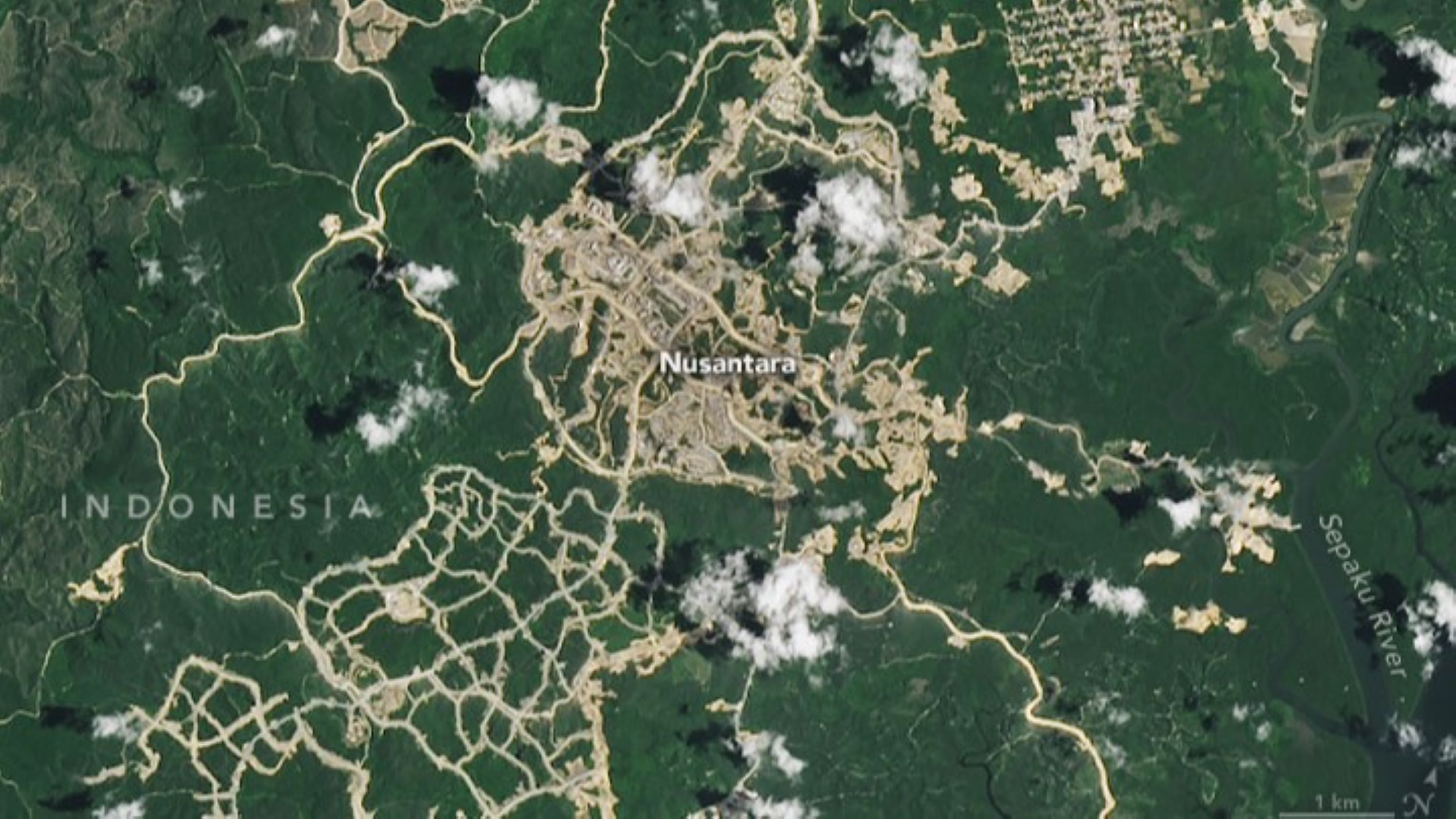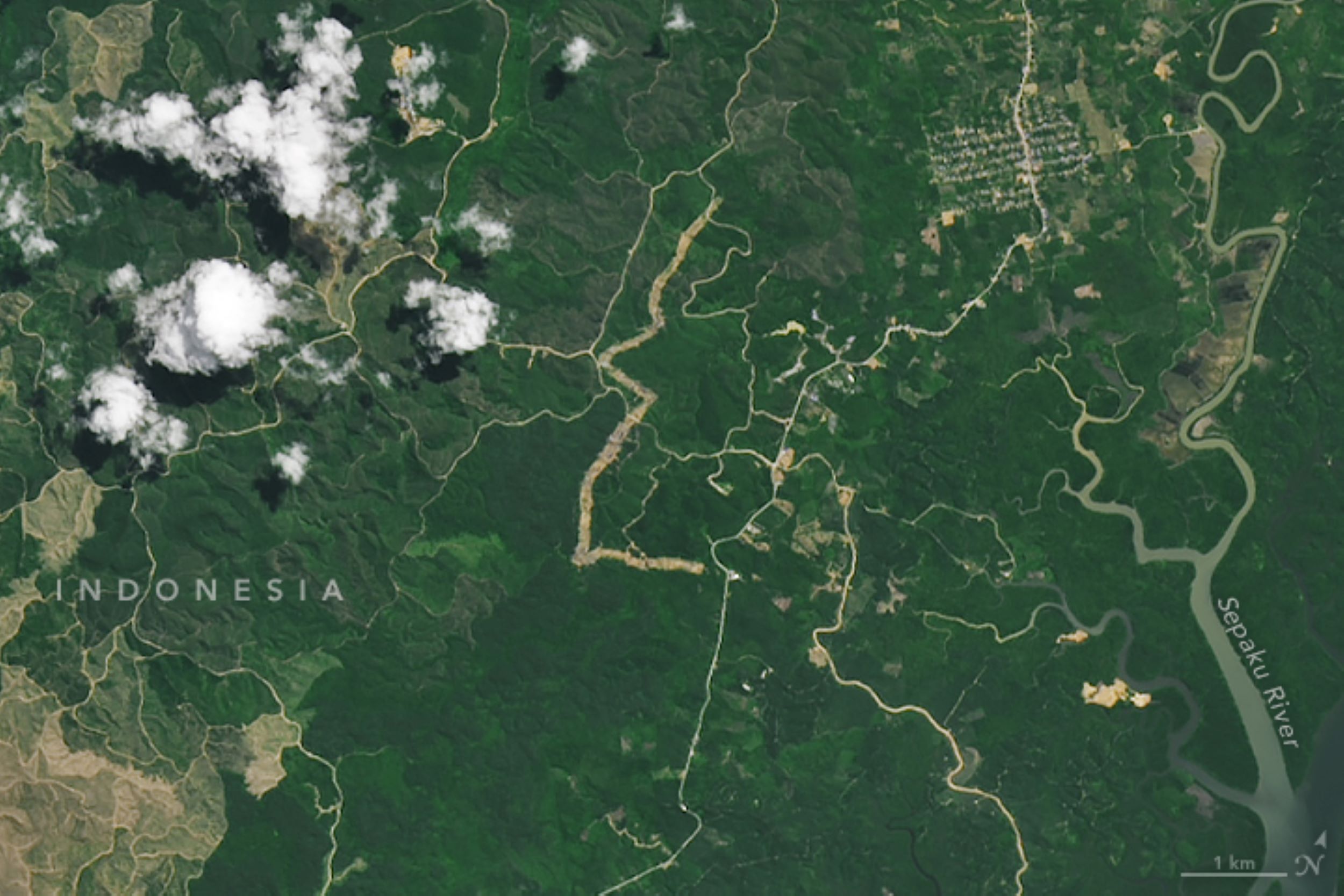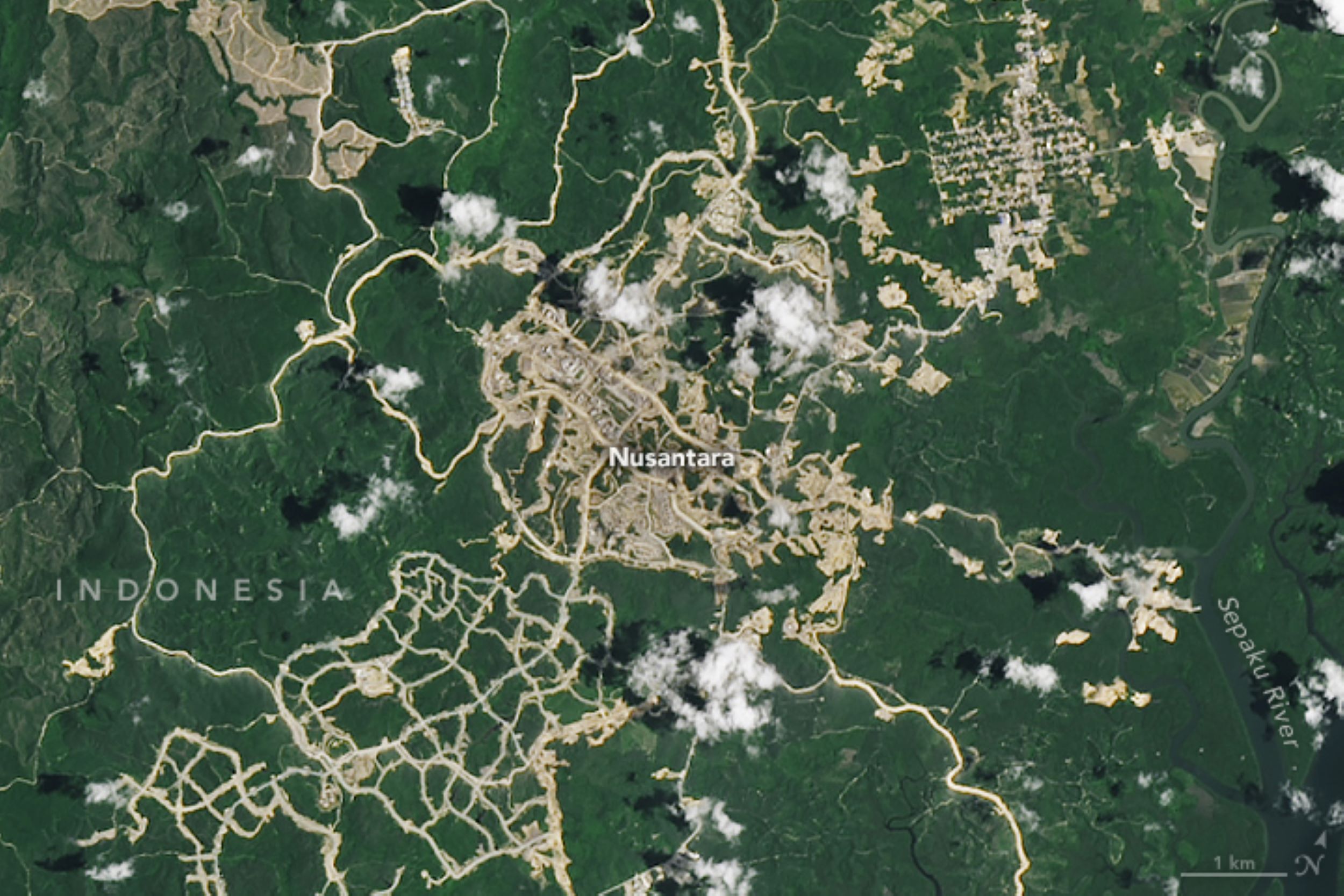Striking new satellite images show Indonesia's new jungle capital taking shape
Nusantara will be the new capital of Indonesia as Jakarta continues to subside below sea level.

Striking NASA images capture the birth of Indonesia's new jungle city on Borneo as the country looks to move its sinking capital.
The satellite shots from April 2022 and February 2024 show a network of new roads on the landscape and the construction of buildings in eastern Kalimantan, where Indonesia is creating its new capital city, Nusantara.
NASA's Earth Observatory shared the images, taken by the Operational Land Imager 2 (OLI-2) on the Landsat 9 satellite and the OLI on Landsat 8, as part of its Image of the Day series on Feb. 23. They highlight the progress outgoing President Joko Widodo has made with his ambitious plan to move Indonesia's capital as well as the environmental impact of building on Borneo.
A driving force behind the move is that Jakarta, Indonesia's current capital on the island of Java, is sinking below sea level. A 2011 study published in the journal Natural Hazards found that Jakarta typically subsided at a rate of between 0.4 and 6 inches (1 and 15 centimeters) per year, with some areas sinking by as much as 11 inches (28 cm) per year. That steady drop and rising sea levels due to climate change put the city's future at risk.
Study co-author Heri Andreas, a researcher at the Bandung Institute of Technology in Indonesia who studies Jakarta's land subsidence, told BBC News in 2018 that parts of the city will be underwater by 2050.
"The potential for Jakarta to be submerged isn't a laughing matter," Andreas said. "If we look at our models, by 2050 about 95% of North Jakarta will be submerged."
Related: Satellite images reveal just how much cities on the US East Coast are sinking
Sign up for the Live Science daily newsletter now
Get the world’s most fascinating discoveries delivered straight to your inbox.
There's evidence that the sinking in Jakarta is caused by excessive groundwater extraction. Jakarta relies on groundwater from underground aquifers, and as the groundwater level drops, it causes the land above to sink, according to the study.
The city is also densely populated and suffers from overcrowding, traffic congestion, hazardous air pollution and drinking-water shortages, according to NASA. Widodo has planned for Indonesia's new capital on Borneo to be completely different.


Nusantara will be a sustainable city powered by renewable energy, according to the city's website, which also states that residential and commercial buildings will be constructed using "strict environmentally friendly construction methods."
Borneo is the third-largest non-continental island in the world and far less populated than Java. The island is split among Indonesia, Malaysia and Brunei. But Kalimantan — Indonesia's part — makes up most of the landmass, and there's plenty of room to build a brand new, modern metropolis from scratch. There's also, however, a lot of nature.
Borneo is a biodiversity hotspot that's home to rich ecosystems and many unique species, which could be threatened by the new development even if the city ends up sustainable. Building a city produces emissions and requires supporting infrastructure stretching beyond its borders.
Mongabay, a nonprofit news website for environmental science and conservation, has reported that the city's construction has led to the clearing of mangrove habitats and forested areas of high conservation value, as well as conflicts with Indigenous communities and the potential for human displacement.
Myrna Asnawati Safitri, the Nusantara Capital City Authority's deputy for environment and natural resources, pushed back on some of these concerns in a 2023 interview with Mongabay, saying the development won't sacrifice the environment.
"If you ask me, I say no, because, firstly, the regulatory framework and development planning clearly state that the construction of the new capital is aimed to rehabilitate the location's environment that has already been damaged," Safitri said.
Much of the city is being built on expiring logging concessions and settlements, and the government wants to reforest barren lands around the new capital.
The New York Times reported in May 2023 that Widodo has had success in reducing the destruction of Indonesian rainforest for palm oil. However, local leaders have the autonomy to pursue the extraction of natural resources, and coal mining has a presence in the province surrounding the new capital, the Times report noted.
"Indonesia is notorious for having good laws that are poorly implemented," Eka Permanasari, an associate professor of urban design at Monash University, Indonesia, told the Times. "There is the possibility that Nusantara can be a reference for future cities, but that depends on what's on paper being implemented in the field."
The city is expected to be completed by 2045.

Patrick Pester is the trending news writer at Live Science. His work has appeared on other science websites, such as BBC Science Focus and Scientific American. Patrick retrained as a journalist after spending his early career working in zoos and wildlife conservation. He was awarded the Master's Excellence Scholarship to study at Cardiff University where he completed a master's degree in international journalism. He also has a second master's degree in biodiversity, evolution and conservation in action from Middlesex University London. When he isn't writing news, Patrick investigates the sale of human remains.










